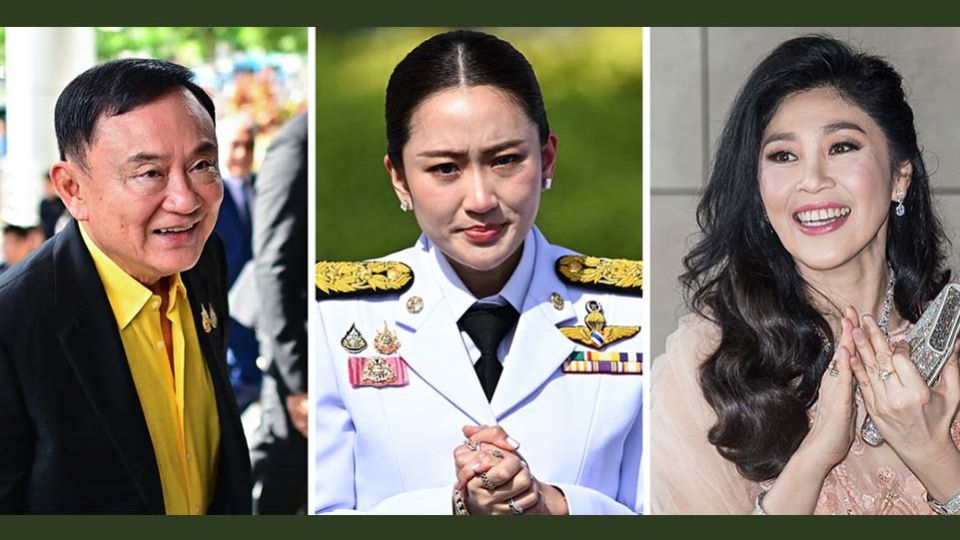September 9, 2025
BANGKOK – Thailand’s political landscape has undergone a dramatic transformation as the country’s so-called “deep state” apparatus has effectively pressured the influential Shinawatra family to abandon their grip on power, according to political analysis.
The shift has seen Thaksin Shinawatra depart the country to curtail his control over party affairs during the critical government formation period, whilst the Pheu Thai Party has lost its “licence” to lead the government from the deep state establishment.
In a striking reversal of fortunes, the Bhumjaithai Party has received a “fresh ticket” to spearhead government formation, with party leader Anutin Charnvirakul securing the position of Thailand’s 32nd Prime Minister through what sources describe as a clandestine deal with the People’s Party.
The Fall of a Political Dynasty
The Shinawatra clan’s political journey—spanning from Thai Rak Thai through Palang Prachachon to Pheu Thai—has produced six prime ministers but concluded with a series of Constitutional Court rulings affecting five leaders and two military coups.
The family recently lost their 31st Prime Minister, Paetongtarn Shinawatra, over serious ethical violations concerning audio recordings that ultimately derailed Pheu Thai’s government formation deal.
Deep state elements have reportedly blocked Pheu Thai’s remaining card—dissolving Parliament—to prevent them from breaking the political deadlock whilst maintaining their grip on state power.
They have also prevented the party from pushing forward Chaikasem Nitisiri as a new prime ministerial candidate.
The New Political Arrangement
The comprehensive pressure campaign reflects the significant weakening of the “spiritual leader of Pheu Thai’s” influence following the expiration of the party’s special mandate on 29th August and 5th September 2025.
Bhumjaithai has emerged as the new standard-bearer for conservative forces, striking a secret deal with the “orange faction” in exchange for constitutional amendments to what is regarded as Thailand’s most difficult constitution to modify.
Anutin secured his position with an overwhelming 311 parliamentary votes, including support from nine red-shirt MPs, alongside existing coalition partners—the result of swift and decisive manoeuvring by the blue camp, which appeared to have plotted this government reversal well in advance.
Thaksin’s Strategic Retreat
On the day of the prime ministerial vote, Thaksin Shinawatra—the red camp’s “big boss”—made the decision to fly abroad. Sources within the red camp indicate the patriarch received signals to take his family overseas to prevent them from controlling political direction during the government formation struggle with Bhumjaithai.
This departure effectively cuts the Shinawatra family’s influence over Pheu Thai’s future direction, despite Thaksin’s assurances that he will return for his 14th court case hearing on 9th September.
The Licence System
The first “licence” granted by the deep state allowed Thaksin to return to Thailand from 1st September 2023 through a secret deal, receiving a royal pardon that reduced his sentence to one year in prison under General Prayuth Chan-ocha’s administration.
This arrangement meant the former PM avoided actual imprisonment, instead staying at Police General Hospital before his release in early 2024.
This licence granted Pheu Thai power from 22nd August 2023 until 5th September 2025. However, the rapid political changes meant the establishment no longer wished to use a Pheu Thai prime minister under Shinawatra influence as their conservative representative.
Future Prospects and Challenges
Under the new Bhumjaithai government, observers question whether the Shinawatra family will abandon active politics, with Thaksin potentially retreating to a purely spiritual leadership or financial backing role, allowing the party to operate as an independent political institution free from ownership control.
Sources within Pheu Thai estimate that in the next election, the party may secure fewer than 100 seats, with worst-case scenarios suggesting no more than 50 seats.
This decline stems from policy mismanagement and strategic errors by the leadership’s inner circle, leading to defections among current and former MPs who felt neglected by the party.
The “Shinawatra brand” may prove difficult to deploy in future major elections, particularly given the damaged reputation from anti-Pheu Thai sentiment following the Thai-Cambodian border incidents.
Opposition Strategy
Before any parliamentary dissolution, Pheu Thai must navigate its new role as opposition with its remaining 131 MPs (minus nine red-shirt defectors), competing with the People’s Party for opposition leadership in a three-way political landscape.
Key figures including Wisuth Chainarun, Cholnan Srikaew, Sutin Klungsang, and Jaturon Chaisaeng are positioned as Pheu Thai’s opposition frontline, coordinating across generational lines to scrutinise the Anutin government.
Party insiders are calling for key members to initiate a no-confidence motion against PM Anutin before the parliamentary session ends on 30th October, citing the Khao Kradong and Senate bribery cases to pressure the People’s Party into voting against Anutin.
The Crucial Variables
The party’s future depends heavily on whether current financial backers—including The Sun and BTS capital groups—remain loyal to Pheu Thai, as this will determine the party’s ability to retain stronghold constituencies whilst vulnerable areas face higher risks of losing seats.
Particular attention focuses on the “2S Group” led by Suriya Juangroongruangkit, whose parliamentary strength significantly impacts the party’s voter base and government formation capabilities.
Should red-camp financiers abandon Pheu Thai, it could effectively end the Shinawatra family’s political relevance by default—much like Pheu Thai itself is no longer the deep state’s preferred choice for government leadership.


